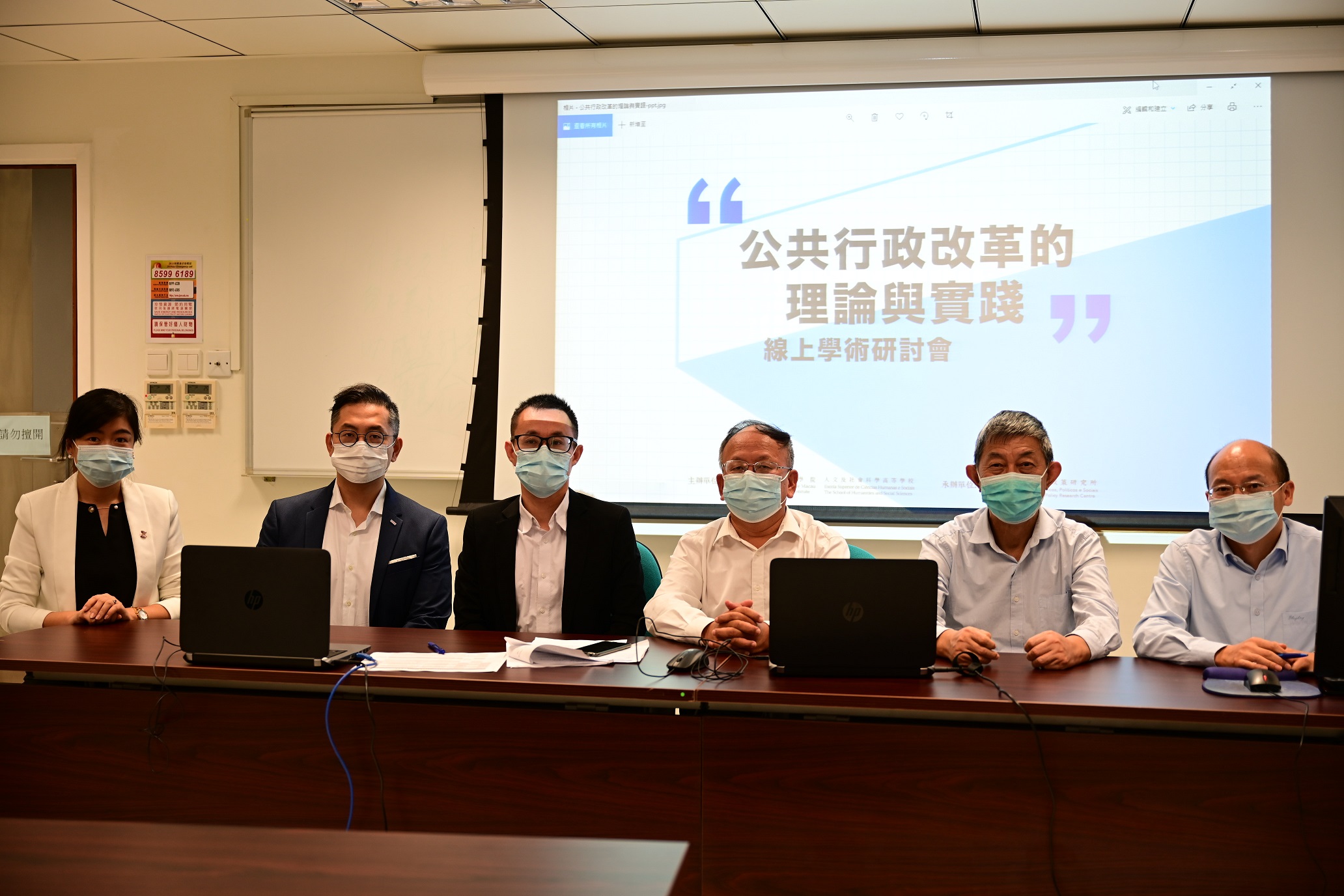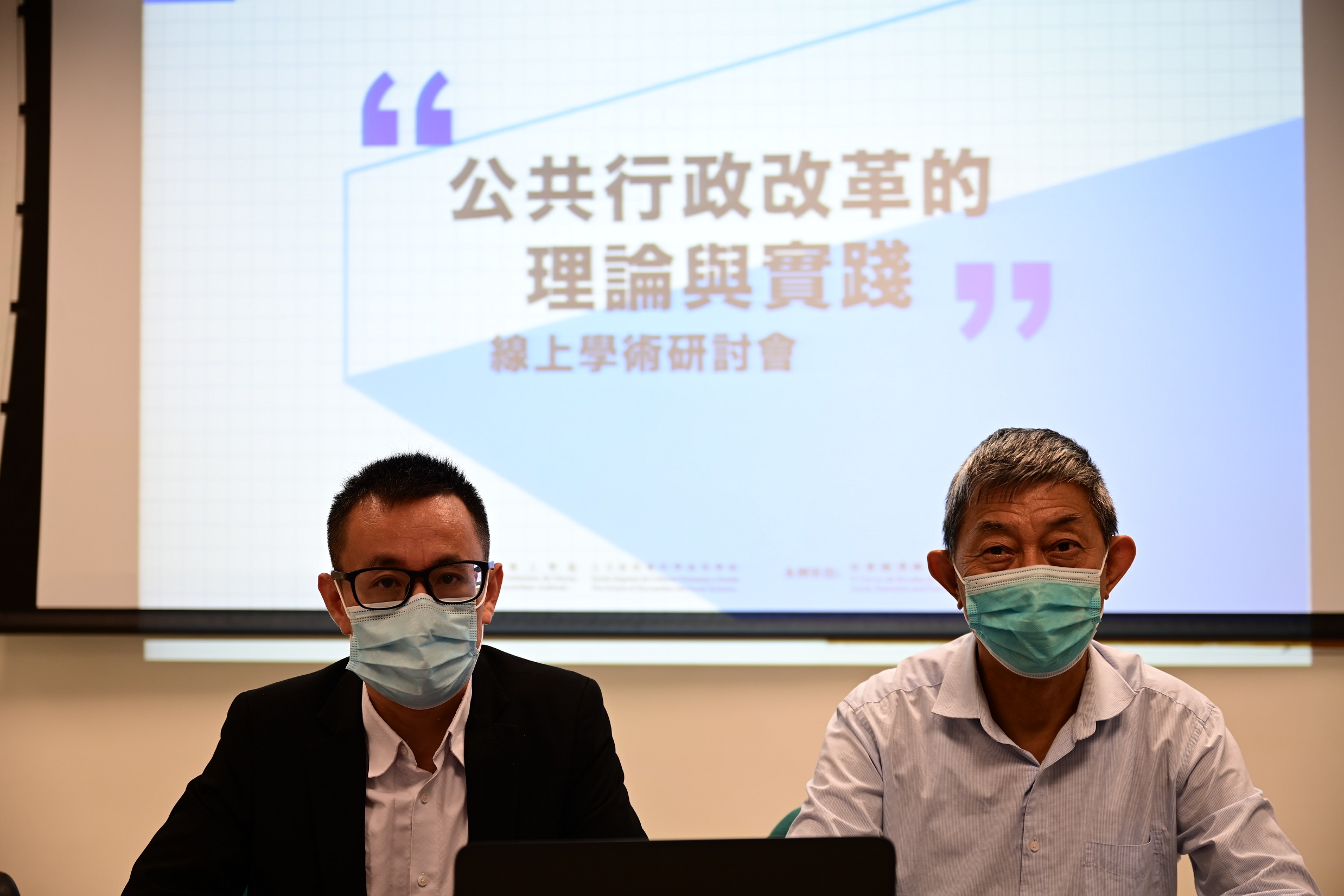Highlights
MPI held online academic conference on ‘Theory and Practice of Reform on Public Administration’
In order to deepen the understanding of the latest theories and practices of public administration reform, the School of Humanities and Social Sciences (ESCHS) of Macao Polytechnic Institute (MPI) held an online conference on ‘Theory and Practice of Reform on Public Administration’ on November 27th, 2020. The four topics of the conference were digital government, organizational change, civil service system and cross-sector cooperation. Experts and scholars of well-known institutions of higher education from Chinese mainland, including Peking University, the Party School of the Central Committee of C.P.C. (National Academy of Governance), Chinese Academy of Social Sciences, Chinese Public Administration Society, Sun Yat-Sen University, South China Normal University, Dalian University of Technology, and well-known scholars from Macao were invited to attend the conference.
In the opening speech, Dr. Yin Yifen, Executive Director of Social Economy and Public Policy Research Centre, ESCHS, pointed out that “further promoting the reform of public administration” is one of the top ten policy priorities of the Macao SAR Government in 2021. How to promote the construction of digital government, streamline the government and delegating authorities, and achieve the goal of building a modern service-oriented government featuring honesty, efficiency, justice, and convenience for the people and business, are all questions that need to get further enlightenment from the theory and practice of Public Administration reform at home and abroad. Dr. Yin pointed out that it is expected that this seminar would provide some useful policy references about the top-level design and overall planning of Macao SAR government's public administration reform.
Prof. Chen Qingyun, doctoral supervisor of the PhD Program in Public Policy of MPI, highly praised the recognition and determination of the new government of Macao SAR on administrative reform. He believed that in order to achieve the goal of administrative reform in Macao, the functions of various government departments must be scientifically clarified, and the complex relations among functions, institutions and personnel must be correctly handled.Prof. Lou Shenghua, ESCHS, MPI, pointed out that a reform of administrative authorization system is needed to establish the principle of replacing authorization with legal authority, formulate unified laws to regulate the administrative power of department and bureau level organs according to the office's administrative power, and restructure the existing legal system of authorization, so as to form a unified legal system of administrative power allocation.Prof. Zhang Ruixin, from the Humanities and Social Sciences Department of Dalian University of Technology, believed that in the future, Macao SAR needed to seek effective coping strategies to adapt to the requirements of modernization of the national governance system and governance capacity, and quickly integrate into the new pattern of national E-Government development.
Prof. Liu Xiaokang, director of the public policy teaching and research section of the public management department, National Academy of Governance, pointed out that Zhejiang’s reform of ‘one visit maximum’ promotes the digital transformation of the government, and establishes a modern government of ‘overall intellectual governance’, which forces the government to deepen the reform of “releasing, managing and serving”, so as to realize the leap from ‘government centered’ to ‘people centered reform’.Associate Prof. Huang Huang, vice president of the School of Government Management, PKU, proposed the framework of ‘digital government driven by platform’, which constructed the digital infrastructure platform that would connect the public, enterprises and government departments to realize intelligent government service and efficient collaborative office.





